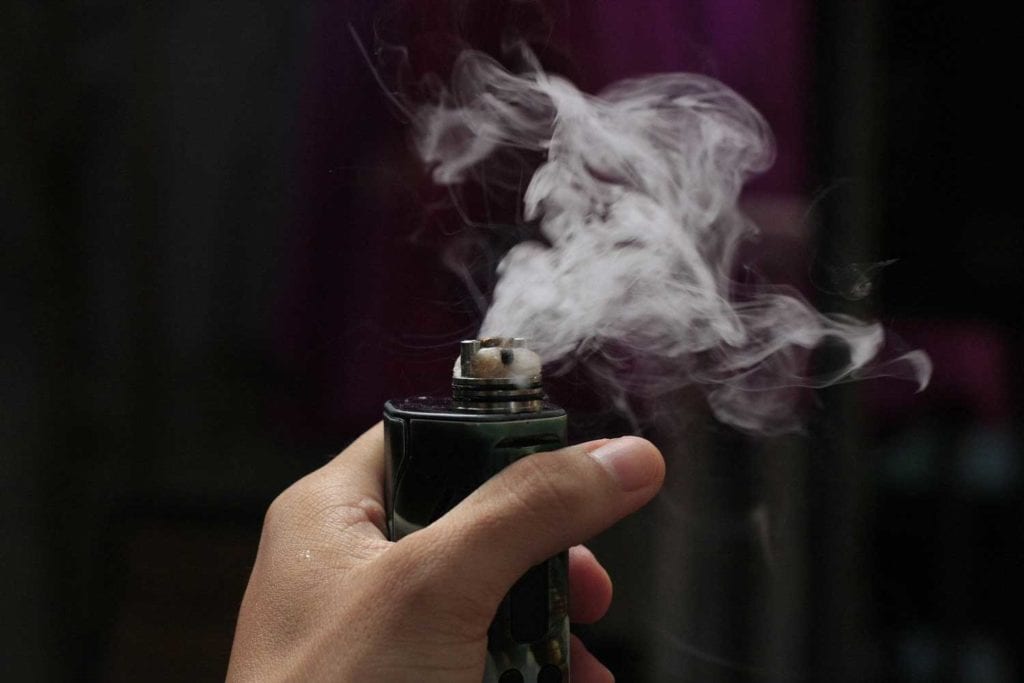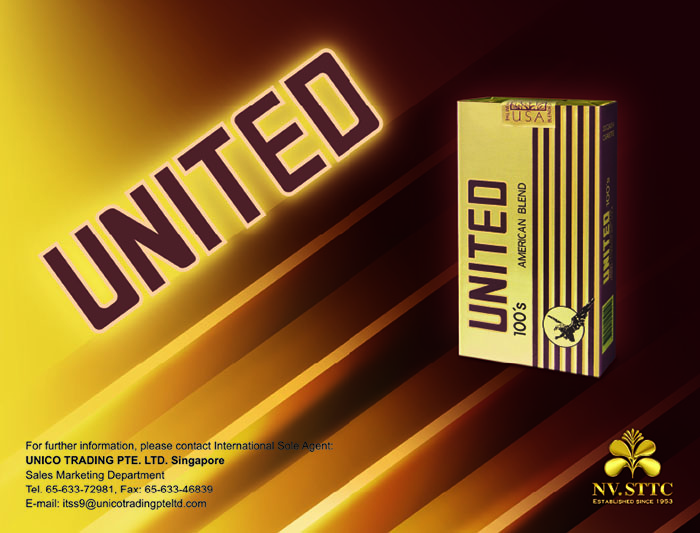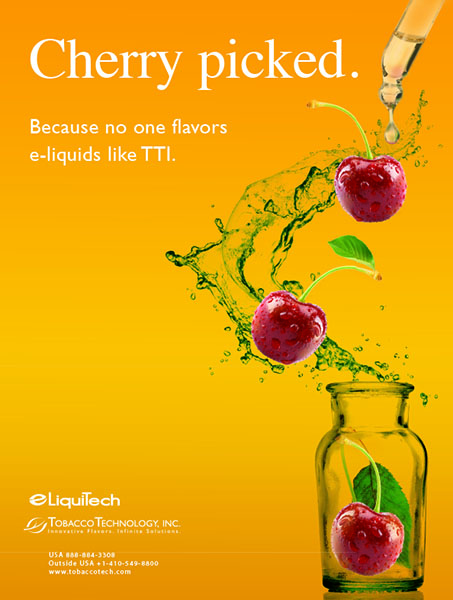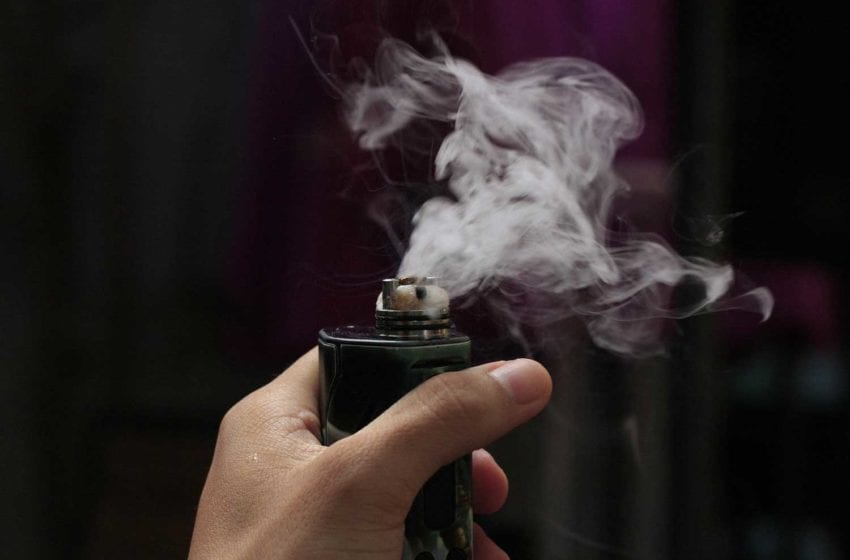
Participants in Keller and Heckman’s recent vapor law symposium agonize about U.S. shipping restrictions and marketing applications.
By Timothy S. Donahue
It is getting more difficult to be in the business of selling and manufacturing vapor products in the United States. Regulations on the industry are forcing many companies to rethink operations or go out of business. During the E-Vapor and Tobacco Law Virtual Symposium, sponsored by the Keller and Heckman law firm, industry experts discussed the current challenges facing the vaping industry. The seminar centered on two regulatory requirements that could regulate e-cigarettes out of existence: premarket tobacco product applications (PMTAs) and the Prevent All Cigarette Trafficking (PACT) Act.
As part of the Consolidated Appropriations Act 2021 in the most recent Covid-19 relief bill signed into law on Dec. 27, 2020, Congress amended the PACT Act to apply to e-cigarettes and all vaping products. Jeffrey Cohen, associate chief counsel at the Bureau of Alcohol, Tobacco, Firearms and Explosives (ATF), explained that the PACT Act rules would ban the U.S. Postal Service (USPS) from mailing electronic nicotine-delivery system (ENDS) products.
Cohen said during the conference that he could not think of a situation, including business-to-business (B2B), where it would be legal to mail ENDS products through the USPS. “Basically, anything that’s covered by PACT, with certain rare exceptions, is nonmailable. You pretty much are not going to be able to mail nicotine-delivery devices anymore,” explained Cohen. “The biggest thing the PACT Act did was … it really wiped out the internet cigarette trade by nonmailability. That’s the biggest hammer in the PACT Act arsenal.”

Many participants shared Cohen’s concern about B2B shipments. However, just a few days after the conference ended, those fears were alleviated. On Feb. 19, the USPS published in the Federal Register its rules for mailing ENDS products. This means the rule will take effect on March 27, 2021. The USPS rule states that the agency will mail vapor products under narrowly defined circumstances, including B2B. Exceptions include:
- Intrastate shipments within Alaska or Hawaii;
- Shipments between verified and authorized tobacco industry businesses for business purposes, or between such businesses and federal or state agencies for regulatory purposes;
- Lightweight shipments mailed between adult individuals, limited to 10 per 30-day period;
- Limited shipments of cigarettes sent by verified and authorized manufacturers to adult smokers for consumer testing purposes; and
- Limited shipments by federal agencies for public health purposes under similar rules applied to manufacturers conducting consumer testing.

Azim Chowdhury, a partner at Keller and Heckman who moderated the seminar, said that the PACT Act has historically exempted B2B deliveries from the USPS ban. Specifically, the USPS ban does not extend to tobacco products mailed only for business purposes between legally operating businesses that have all applicable state and federal government licenses or permits and are engaged in tobacco product manufacturing, distribution, wholesale, export, import, testing, investigation or research.
“Companies seeking to use USPS for business-to-business deliveries must first submit an application to the USPS Pricing and Classification Service Center and comply with several other shipping, labeling and delivery requirements,” said Chowdhury.
The USPS rules also state that the listed exceptions cannot feasibly be applied to inbound or outbound international mail, mail to or from the Freely Associated States or mail presented at overseas Army Post Office, Fleet Post Office or Diplomatic Post Office locations and destined to addresses in the United States. Because of this inability, all ENDS products “in such mail are non-mailable, without exception.”
In addition to the non-mailing provisions, the PACT Act requires anyone who sells cigarettes or smokeless tobacco to register with the ATF and the tobacco tax administrators of the states into which a shipment is made or in which an advertisement or offer is disseminated, according to Chowdhury. Retailers who ship cigarettes or smokeless tobacco to consumers are further required to label packages as containing tobacco, verify the age and identity of the customer at purchase, use a delivery method (other than USPS) that checks ID and obtains an adult customer signature at delivery, and maintain records of delivery sales for a period of four years after the date of sale, among other things.
Excluded from the statutory definition are products approved by the U.S. Food and Drug Administration for sale as “tobacco cessation products or for other therapeutic purposes and marketed and sold solely for such purposes.” The USPS also proposes to treat ENDS as a standalone category, “albeit one generally subject to the same restrictions and exceptions as cigarettes, consistent with the statute.”
The PACT Act also mandates that the ATF produce a list of noncompliant sellers who have violated the conditions of the PACT Act. If a company gets on the noncompliant list, Cohen says that even the common carriers cannot ship the company’s products. He explained that anyone can nominate entities who they believe are noncompliant of the PACT Act.
“We send a letter out to them indicating that we’re considering putting them on the list. The company has an opportunity to reply and explain to us why they are in compliance,” said Cohen. “Then we make a decision … distribute this [list] to the post office, to credit card companies, to common carriers, and they cannot ship goods sold by people that are on the list.”

Still struggling
PMTAs were due to the U.S. FDA on Sept. 9, 2020. However, many companies submitted incomplete applications and are still working on completing the scientific studies that the applications require. Some companies are submitting PMTAs to get approval for new vaping products to be allowed to be marketed. For a product that was on the market prior to Aug. 8, 2016, to remain on the market, the manufacturer must have submitted a PMTA by the deadline.
Chowdhury says that the FDA has already started issuing warning letters to companies that did not submit PMTAs, asking them to remove the illegal products from the market. In a recent letter to the industry, the FDA has stated that it is prioritizing enforcement against any ENDS product that continues to be sold and for which the agency did not receive a product application. To date, the FDA has sent warning letters to 30 firms who manufacture and operate websites selling ENDS products, specifically e-liquids, which lack premarket authorization.
Testing requirements for PMTAs featured prominently as a discussion topic during the seminar. One requirement that can cause the regulatory agency to issue an immediate refuse-to-accept letter is the failure to include an environmental assessment (EA) study. “Despite the lack of direct correlation between environmental impacts and public health assessments, omission of an EA will jeopardize the temporary marketing order for deemed products,” one speaker noted.
For vapor products, EA studies must include items such as release of aerosol into the air, potential release of biomarkers into aquatic environments after wastewater treatment and biosolids as fertilizer. It should also include the impact of disposing of a product. This includes leftover e-liquid impacts on landfills from empty bottles and cartridges as well as the hardware impacts, such as from batteries and packaging.
Many participants asked questions about the rules for synthetic nicotine. Chowdhury explained that legislation pending in Congress includes language instructing the FDA to issue a final rule on the regulation of synthetic nicotine.
“FDA could take the position that because nicotine itself is a drug, it has this effect on the structure, function of the body that once you take away the fact that it’s derived from tobacco … could FDA come after that industry, come after those products as unapproved drugs or unapproved drug delivery devices? That’s a question that we’re waiting to see how FDA reacts as more nicotine products come to market,” he said.
Nicotine salts were also addressed. If a company has an e-liquid that contains freebase nicotine but switches to a nicotine salt, that is a change in the formulation of the product and therefore creates a new product. “Now that we are in a post-PMTA world, where applications were submitted back in September, if you were to come to market or try to change the labeling of a product now, arguably because review of the label, how it’s perceived, how it impacts the consumer, it’s part of the review process,” explained Chowdhury. “It’s not clear that a labeling change is something you want to do at this point without at least notifying the FDA and providing FDA with the updated labeling in your application.”
Due to lab space restrictions and Covid-19-related delays, numerous smaller manufacturers are still trying to complete the required testing for incomplete PMTAs. Many manufacturers are concerned about the FDA approving the products produced by major tobacco companies sold in C-stores before approving products from smaller companies whose products are typically sold in vape shops. One speaker noted that the industry is currently “freaking out” about the uncertainty and toughness of the PMTA process, fearing that the market could be handed to large companies.
These fears are not unfounded. In a Feb. 16 update, the FDA confirmed that, due to the sheer number of applications, the agency has set aside the products with the greatest market share and will push those products through the PMTA process more quickly. The agency stated this was because, “based on their market share,” these companies would provide the biggest impact to overall public health. Since vapor products are tracked nationally only through Nielsen and C-store data, products from Juul Labs, R.J. Reynolds Vapor Co., Njoy and Logic have moved to the front of the PMTA line. Manufacturers selling hardware in untracked vape shop channels have no way of proving market share to the FDA.
“I don’t think it will be only big tobacco getting PMTAs, but I think there’s a serious risk where you end up with the only flavors being approved are tobacco,” one presenter noted. “It has been a tough year, not just because of Covid, but the uncertainty over PMTAs. People are preparing to change their entire business plans because of the PACT Act. Until the FDA acts on PMTAs, real unity in this industry—not just unity among people selling your exact products—is near impossible. Once there are PMTAs [approved], there’s going to be unity through those with PMTAs to clear the market of those without them.”


